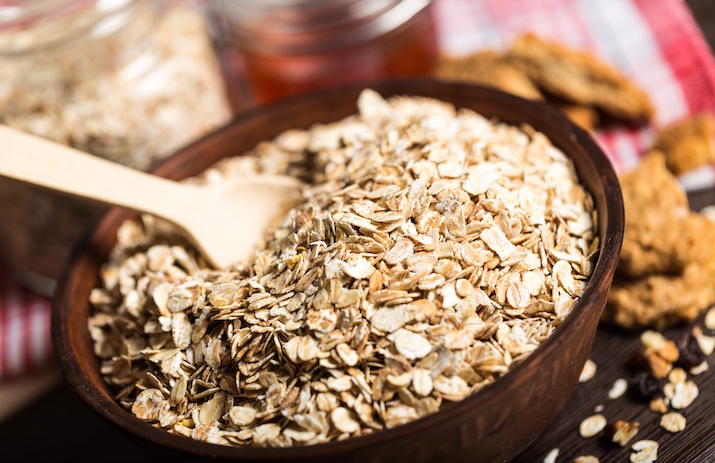
There is a promotion on the line, but wait! You don’t know SQL, and it’s a pre-requisite for the position. You only have 6 months to prove you can do it. What do you do?
Less Time to Learn a New Skill
“Brains are mostly made up of fat. The protective sheath of neurons is 70 percent fat”, according to Cat North of the LiveStrong Foundation. Why does this matter?
New skill acquisition of difficult material requires what Cal Newport’s book Deep Work addresses as “deliberate practice”, a process of intense focus which encourages the myelination of specific brain circuits, creating a stronger connection to the material your trying to master.
To increase your capacity for deep work, start with adding more healthy fats to your diet ( i.e. avocado, salmon, and almonds).
A good amount to start with is adding half an avocado or 1-2 thumb size amounts of almonds each meal, and one serving of salmon each day the size of your palm.
Making Molehills out of Mountains
“Body fat is significantly correlated with a decline in task accuracy and response time,” according to a study published in the International Journal on Obesity.
The hormone Cortisol, which is released in response to stress and low blood sugar levels, was significantly higher in subjects with higher body fat levels when presented with a stressful situation.
The ability to complete spacial processing, selective attention and working memory tasks while under duress had a greater negative impact to those with higher body fat levels.
To limit the amount of stress hormone that is released during your day, try spacing your meals out every 2-3 hours. This will ensure that your blood sugar stays even and will have you feeling like you can handle any challenge or opportunity that comes your way with confidence and clarity.
3 Steps You Can Take Today to Lower Your Body Fat:
1. Eat 4-5 times each day
If you’re only eating twice a day this might seem impossible, so start small. Adding one extra meal each week or two until you feel you have a handle on the frequency and amounts, will make things seem easier to manage.
It’s always easier to add a meal than start out too fast and fall off the wagon. So, start with adding one meal, and stick with that until you feel you no longer have to think about it. Then, add another until you’re eating 4-5 meals daily.
2. Add more protein
Adding more protein to your diet can help you look lean and mean. Along with the visual benefits, protein will help you recover from your workouts and make your body work to digest the food you’re feeding it, which means more burned calories!
Start by adding a palm size portion of lean meat (i.e., chicken, lean beef, fish) to each meal (2 palms for guys). Each palm will be about 3-4 ounces depending on your size. Vegetarian’s can get some added protein by throwing in some lentils, black beans. or tofu to each meal.
Here is a great resource for using your hands as measuring cups.
3. Getting your timing right
Controlling insulin is the key to getting your body composition under control. “The types of carbs you eat can make or break your ability to rule insulin. Carbs can be categorized into two basic categories: 1) high glycemic index (GI) carbs and 2) low GI carbs. The glycemic index refers to how fast the carbs in the food end up as glucose in your blood stream”, says renowned exercise physiologist Jim Stoppani of JYM Supplements.
The best times to introduce faster carbs into your system are right when you wake up, and right after your workout. The rest of your meals try to keep low GI carbs (veggies or fruit).
Eating at this time will allow the body to limit stress hormone, refill muscle energy lost during the night or after training, providing you an improved hormone balance in your body, allowing your muscles to take advantage of your carbs without getting stored as fat.
*Try getting in between 30-50 grams of starchy carb (i.e. bread, oatmeal) or fruits (i.e. dates) in the morning.
* Post-workout, try using 50-70 grams of a glucose supplement (i.e. maltodextrin or dextrose), along with 25-40g of a whey isolate.
Whats next?
If you’re looking for help on trying to get your nutrition in order send me an email at [email protected]. For any suggestions on topics that you would like to see covered, please let me know.
Resources
- Livestrong.com
- Mujica-Parodi, L. R., Renelique, R., & Taylor, M. K. (2008). Higher body fat percentage is associated with increased cortisol reactivity and impaired cognitive resilience in response to acute emotional stress.Int J Obes Relat Metab Disord International Journal of Obesity,33(1), 157-165. doi:10.1038/ijo.2008.218
- Livestrong.com
- Newport, C. (n.d.). Deep work: Rules for focused success in a distracted world.
- Bodybuilding.com



